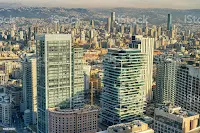Located in the Middle East, Lebanon is a beautiful country known for its stunning coastal views along the Mediterranean Sea. With a rich cultural heritage and a blend of ancient and modern buildings, Lebanon has been referred to as the "Italy of the Middle East" or even compared to ancient Greece. One of the most distinctive aspects of Lebanon is its unique system of government, known as Confessionalism.
Confessionalism was introduced in Lebanon after it gained independence from France in 1943 and remains in place today with some modifications. The system is based on a National Pact, which is a tradition rather than a written document. Confessionalism is a system that protects the representation of various communities, religions, political realities, and institutional powers in Lebanon's government.
In Lebanon's unique system, the five major political positions are divided along religious lines. The presidency is reserved for a Maronite Christian figure, as the Maronite Christians have a longstanding connection to the Mediterranean Sea and Lebanon. The position of prime minister is reserved for a Sunni Muslim, while the speaker of the parliament is given to a Shia Muslim. Additionally, the post of Deputy Prime Minister is assigned to the Christian denomination of Eastern Orthodox, which symbolizes the country's efforts to establish religious harmony. Lebanon recognizes the separate status of all religions, and 18 different religious sects, including 12 Christian sects, 5 Muslim sects, and Judaism, are officially recognized.
The reason behind the prevalence of Confessionalism in Lebanon lies in the religious distribution of the population. Muslims make up 67 percent of the population, Christians account for 32 percent, and the remaining 1 percent follows other religions. It is worth noting that the Christian population in Lebanon has decreased significantly over the past 50 years. Muslims in Lebanon include Sunni and Shia sects, with Sunni Muslims being the majority in Tripoli and Shia Muslims holding a significant presence in Beirut. Maronite Christians predominantly reside in the mountainous regions of Lebanon.
Lebanon's government structure extends beyond the unique religious representation in political positions. The parliamentary system is unicameral and consists of 128 seats, equally divided between Christians and Muslims. Members are elected based on communal proportional representation, and the term of the parliament is four years. The President, elected for a six-year term, requires a two-thirds majority of the parliament members. The President, in consultation with the parliament, selects the Prime Minister, who then forms the cabinet. The cabinet reflects the principles of Confessionalism, with representation from different religious communities, including Muslims, Christians, and the Druze.
Lebanon's justice system also reflects the country's diverse religious landscape. Separate systems of justice have been established for different religions and sects, including different laws and courts for marriage, divorce, inheritance, and guardianship matters.
Lebanon's rich cultural heritage is evident through its long history and diverse influences. The country is home to five of the 20 oldest cities in the world, including Beirut, Sidon, Tyre, Byblos, and Tripoli. It also has significant remnants of the Roman Empire, making it the country with the second-largest number of Roman Empire remains after Italy. Lebanon's official language is Arabic, highlighting its close ties with the Arab world. French is widely spoken, with a large French expatriate community residing in the country. Christianity in Lebanon has strong ties to Greece, and many Christians trace their ancestry back to Greek roots.
With a small area of only 10,500 square kilometers, Lebanon has a population of approximately 6.8 million people. The country has a complex and diverse history, with several cities continuously inhabited for thousands of years. Lebanon faced challenges such as civil wars, occupations by Syria and Israel, and ongoing internal conflicts. However, it has also been a place of refuge for a significant number of immigrants, accommodating over 1.5 million refugees, including Iraqis, Palestinians, Egyptians, Syrians, Iranians, and Turks.
Lebanon's natural beauty is awe-inspiring, characterized by rivers, mountains, forests, and plains. Unlike other countries in the Middle East, Lebanon does not have any deserts. The mountainous terrain offers opportunities for hiking and exploration, with historical ruins and important buildings scattered along the paths. Winter is a particularly enchanting time to visit Lebanon, as the mountains are often covered in snow.
Lebanon is a country that celebrates its diversity and religious heritage through its unique system of government and rich cultural tapestry. Its Confessionalism-based government ensures representation and recognition for various religious communities, while its history and natural beauty make it a captivating destination.

0 تبصرے
Thank you for all friends